

Home > Guides > How to Create An Auto-grading K12 Assessment
Auto-grading assessments have revolutionized the field of education by providing efficient and reliable evaluation methods for K-12 students. These assessments use technology to automatically grade students' responses, saving teachers time and providing immediate feedback to students.
K-12 assessments refer to the various methods and tools used to evaluate and measure the academic progress, skills, and knowledge of students in kindergarten through 12th grade (K-12) education. These assessments play a crucial role in the education system by providing information about students' learning achievements, helping educators make informed instructional decisions, and offering feedback on the effectiveness of educational programs.
K-12 assessments can take different forms, including:
Standardized Tests: These are tests with a set format and scoring system, designed to measure students' proficiency in specific subjects or skills. Examples include state standardized tests and national assessments like the SAT and ACT.
Formative Assessments: These assessments occur during the learning process to provide ongoing feedback on student understanding. They help teachers adjust their instruction and identify areas where students may need additional support.
Summative Assessments: These assessments are typically administered at the end of a specific period (such as a school year or semester) to evaluate overall student learning and determine whether students have met the required standards.
Performance Assessments: These assessments evaluate students' ability to apply their knowledge and skills in real-world situations. Examples include projects, presentations, and portfolios.
Teacher-Made Assessments: Educators create their own assessments to evaluate specific concepts or skills covered in their curriculum.
Efficiency: Auto-grading assessments save teachers considerable time by eliminating the need for manual grading. This allows educators to focus on other instructional tasks and provide timely feedback to students.
Immediate Feedback: With auto-grading assessments, students receive immediate feedback on their performance, enabling them to identify areas of improvement and adjust their learning strategies accordingly.
Consistency: Auto-grading assessments provide consistent grading across all students, minimizing potential biases or variations that may occur during manual grading.
Data-Driven insights: The data generated from auto-grading assessments can be used to analyze student performance, identify learning gaps, and inform instructional decisions.
OnlineExamMaker is a comprehensive online exam system that includes assessment tools. Educators can create auto-grading quizzes and assignments, track student progress, and provide feedback within the platform.
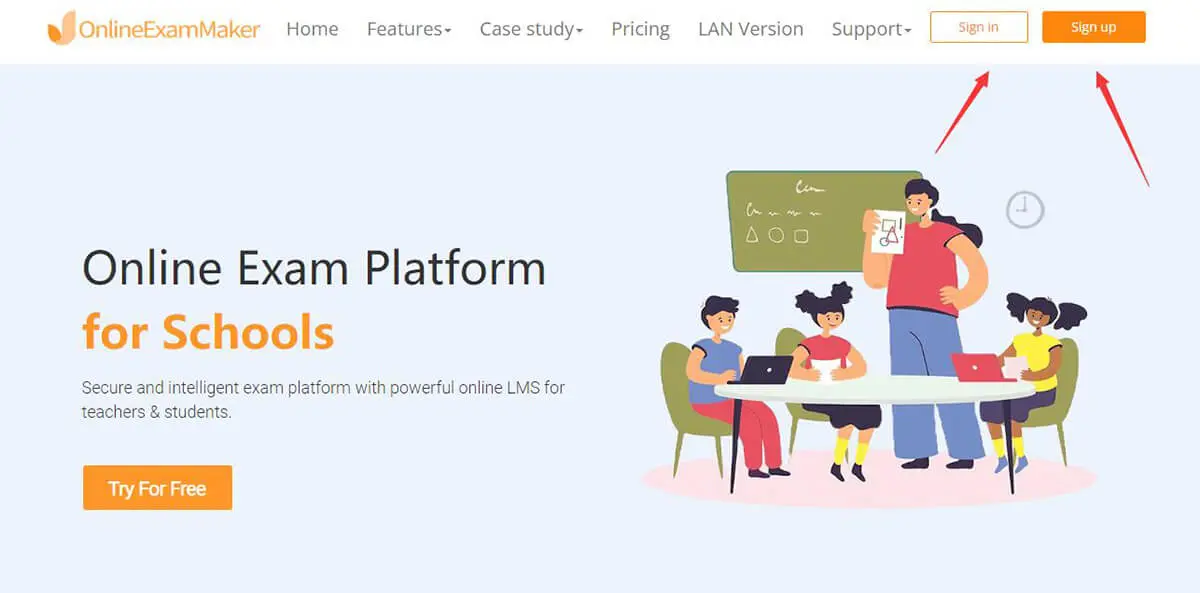
If you would like to use OnlineExamMaker's free edition while still taking advantage of all of its features, you need to create a new account firstly. Visit OnlineExamMaker website, then click "Sign Up" button to create your own account.
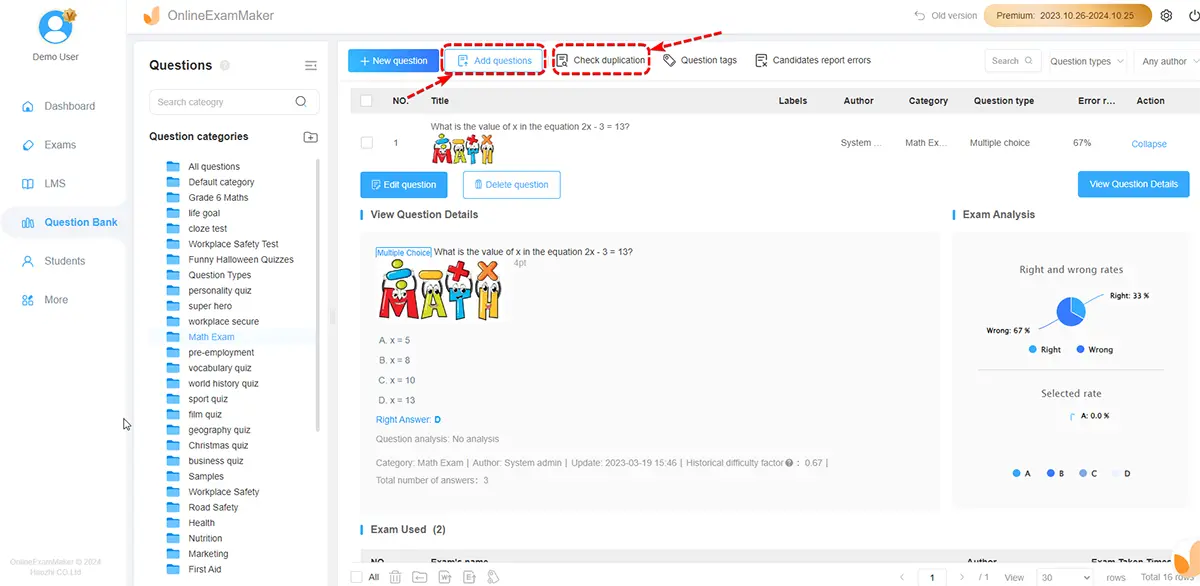
Create a variety of auto-grading questions of your K12 test, including multiple-choice, fill-in-the-blank, matching, or short answer questions. Ensure that the questions accurately assess students' understanding of the content.
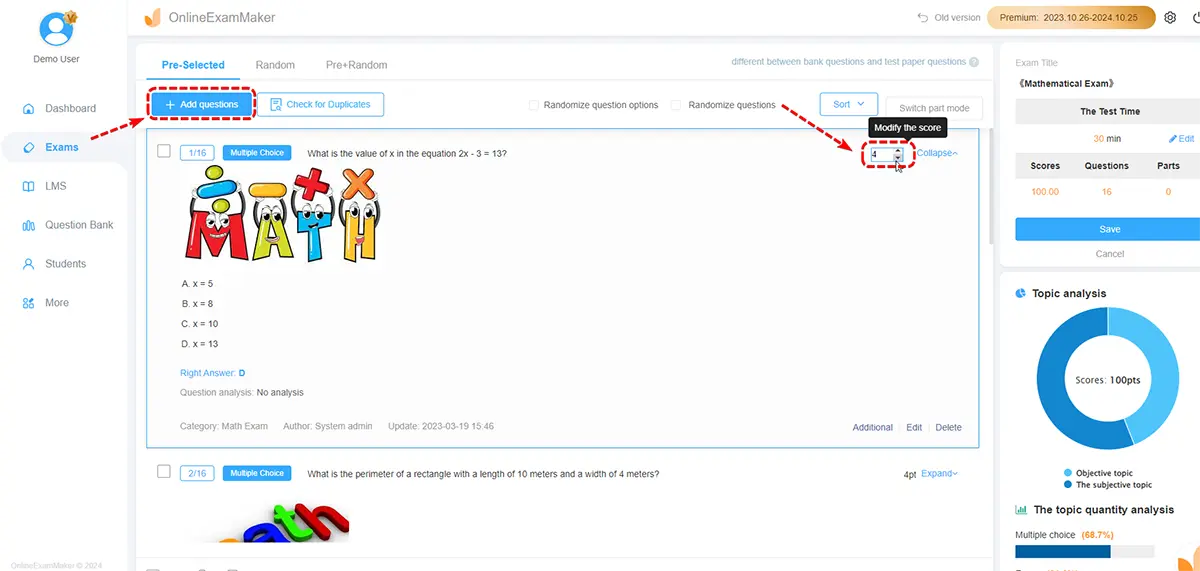
Set up the auto-grading settings within OnlineExamMaker. Specify the correct answers, assign point values to each question, and adjust any additional settings related to grading.
Provide clear instructions to students on how to complete the assessment. Format the assessment to make it visually appealing and easy to navigate.
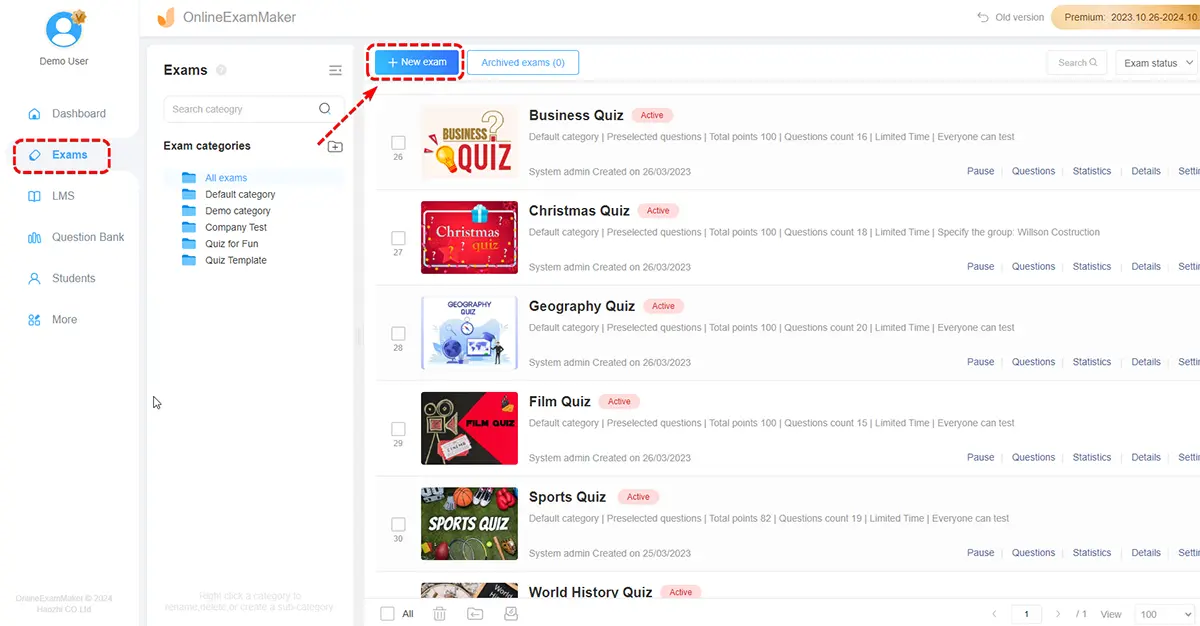
After your question is ready, go to "Exams" section, then click "New Exam" button to start creating your quiz. Once your assessment is created, fulfill the information to continue.
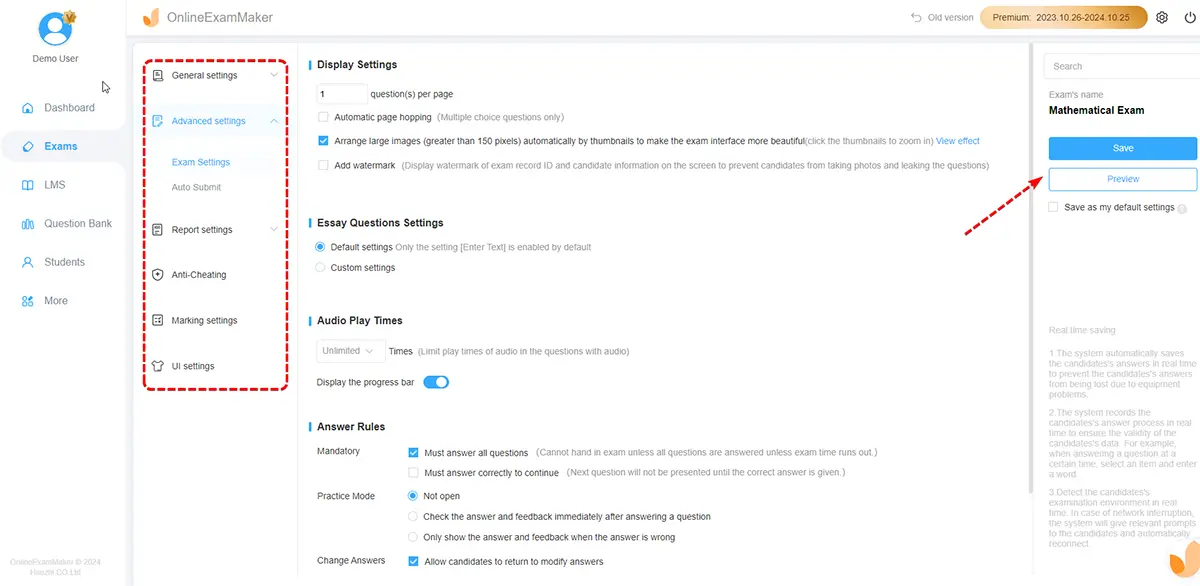
Here you can now choose what settings you would like to add to your assessment, such as quiz time, live date, welcome screen, anti-cheating settings, and more.
Test the assessment yourself to ensure that it functions as intended. Preview the assessment to check the layout, question order, and grading accuracy.
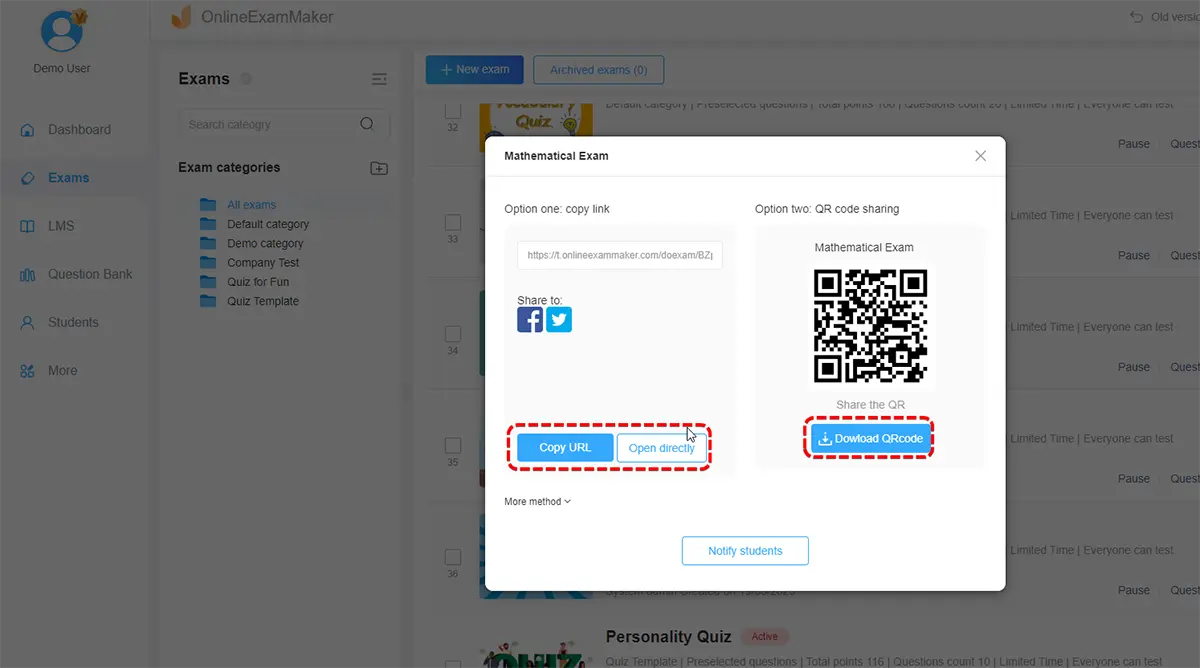
Share the assessment with your students using the chosen platform. Communicate any specific instructions or deadlines for completing the assessment.
Once students have completed the assessment, review the auto-generated results and analyze student performance. Use the data to identify areas of improvement and provide targeted feedback.
Auto-grading assessments offer numerous benefits for K-12 educators, including time efficiency, immediate feedback, consistency, and data-driven insights. By following the step-by-step guide outlined above and utilizing the recommended assessment making platforms, you can create effective auto-grading assessments that enhance the learning experience for your students. Embrace the power of technology to streamline your assessment processes and optimize student evaluation in the K-12 classroom.
Accountability
Online assessments help educational institutions and policymakers assess the effectiveness of the education system and hold schools accountable for student performance.
Individualized Instruction
Results from assessments can inform teachers about the unique needs of each student, allowing for tailored instruction to address areas of improvement.
Curriculum Improvement
Exam reports and data from assessments can guide improvements to curriculum and teaching methods.
College and Career Readiness
Many assessments are used to determine students' readiness for higher education or entry into the workforce.
What types of assessments are used in K-12 education?
K-12 assessments include standardized tests, formative assessments, summative assessments, performance assessments, and teacher-made assessments. Each type serves a specific purpose in evaluating different aspects of student learning.
How often are K-12 assessments administered?
The frequency of assessments can vary. Formative assessments are often conducted throughout the learning process, while summative assessments may occur at the end of a grading period or school year. Standardized tests are typically administered annually or at specific grade levels.
Are standardized tests the only assessments used in K-12 education?
No, standardized tests are just one type of assessment. K-12 education uses a variety of assessment methods, including formative assessments conducted by teachers, performance assessments, and other tools that evaluate different aspects of student learning.
How are assessment results used in education?
Assessment results are used to inform instructional decisions, identify areas of improvement for individual students and the overall curriculum, measure the effectiveness of teaching methods, and provide data for accountability purposes.
What features should you look for in online assessment software?
Here are 5 top features teachers should look for:
1. Automatic grading;
2. Online question bank;
3. Custom academy page;
4. Student management system;
5. Teamwork - multiple sub admin accounts.
What is the role of formative assessments in K-12 education?
Formative assessments are conducted during the learning process to provide ongoing feedback on student understanding. Teachers use formative assessments to adjust their instruction, address misconceptions, and guide students toward mastery of learning objectives.
Do K-12 assessments only measure academic knowledge?
No, K-12 assessments can measure a range of skills, including critical thinking, problem-solving, creativity, and communication. Performance assessments, for example, often evaluate students' ability to apply knowledge in real-world scenarios.
How can parents support their children through the assessment process?
Parents can support their children by staying informed about assessment schedules, encouraging a positive attitude toward learning, providing a supportive study environment, and communicating with teachers about any concerns or questions related to assessments.
Smart & secure online exam system trusted by 90,000+ educators & 300,000+ exam takers all around the world! And it's free.


